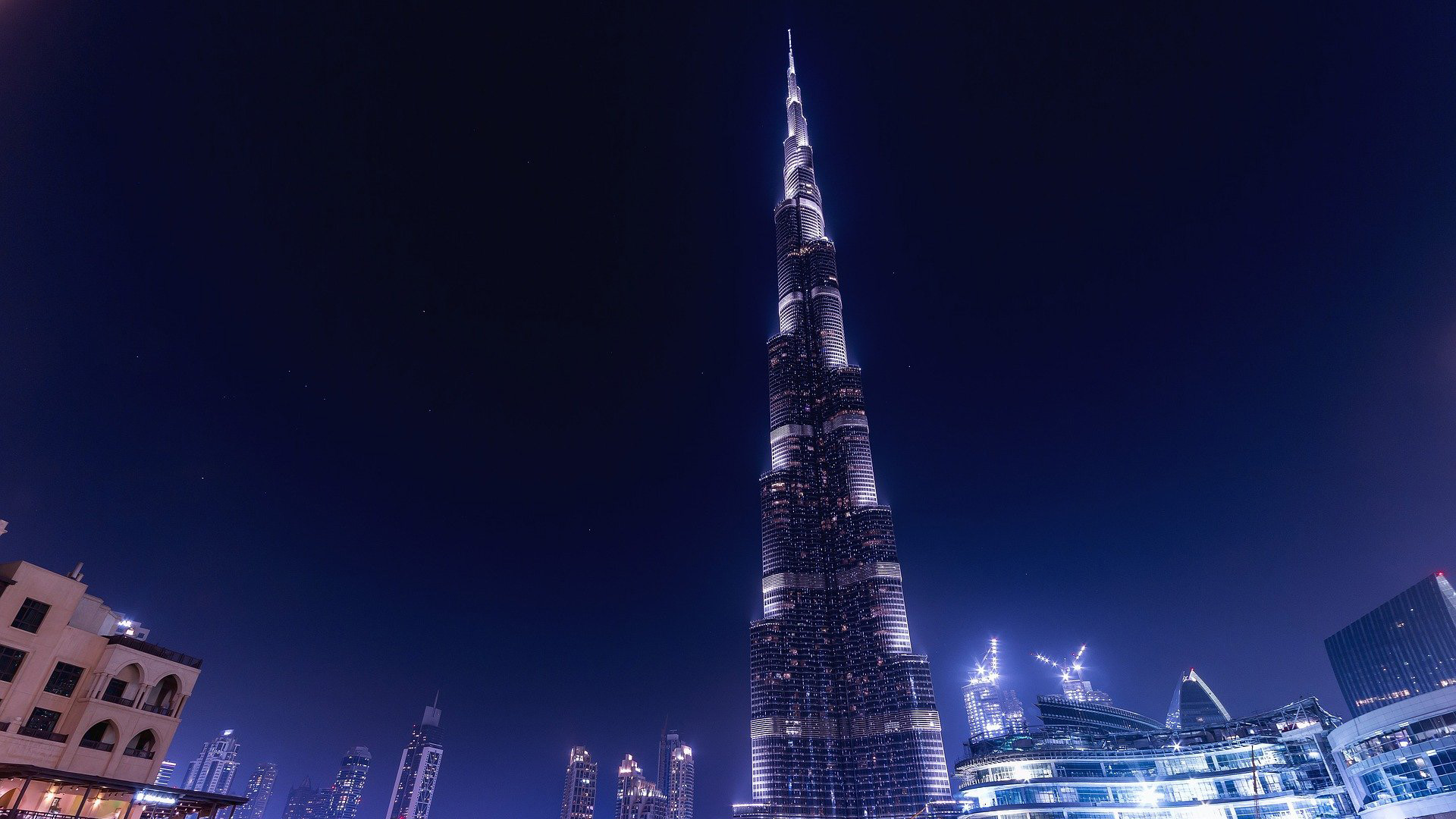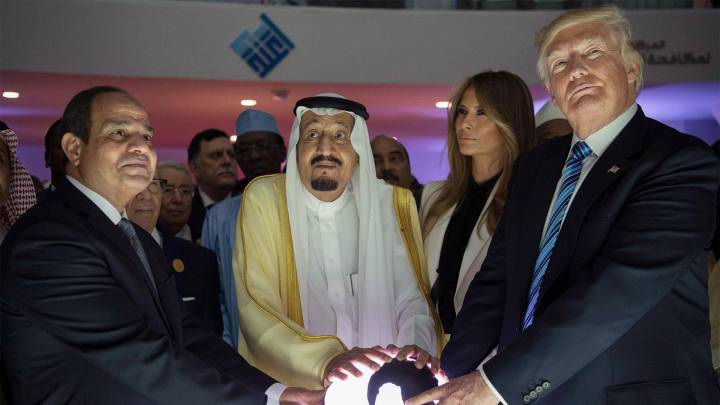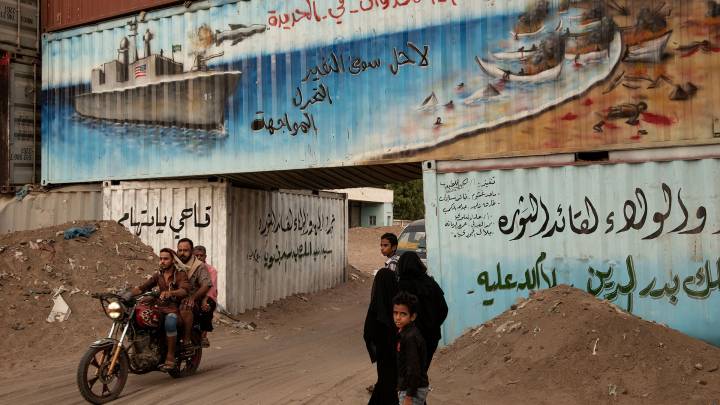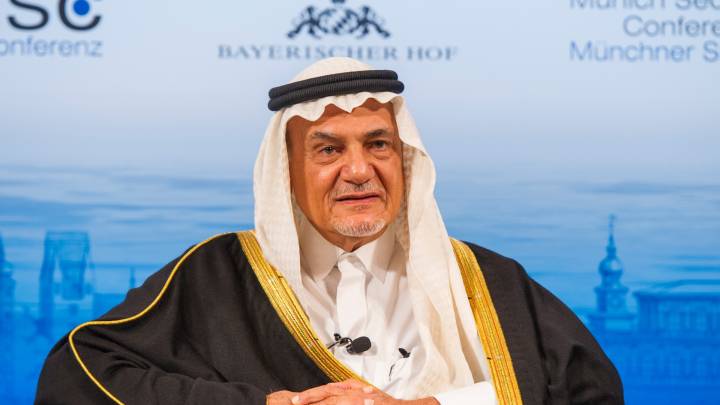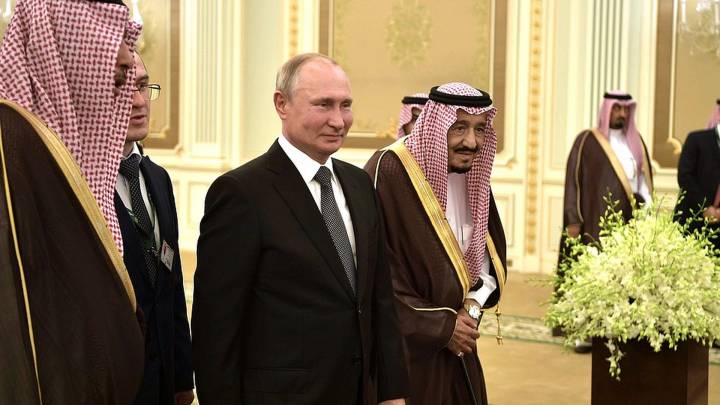Saudi Arabia and the UAE are reaching for the clouds, but will the recent coronavirus pandemic and economic slowdown send their foreign policy ambitions plummeting back to Earth?
When the Burj Khalifa opened in 2010, it was hailed as a clear “declaration of the emirate’s capabilities” – a record-breaking, 828-metre-high entrance onto the world stage. Around 2000 kilometres away, the foundations have been laid for the Burj Jeddah, Saudi Arabia’s 1,000-metre-high entry into the Gulf’s biggest skyscraper competition. According to billionaire Prince Al-Waleed bin Talal, its constructions is a statement of intent “that should not be ignored.”
The ever-taller towers reflect the lofty ambitions of the Gulf’s new generation of political leaders. The UAE’s crown prince, Mohammed bin Zayed, and his Saudi counterpart, Mohammed bin Salman, have adopted more adventurous foreign policies in a bid to secure their respective countries’ long-term prosperity and international standing.
This approach often manifests itself as an attempt to curtail Iranian influence in the region – resulting in a costly and unpopular misadventure into neighbouring Yemen, and a reckless blockade of fellow GCC member Qatar. Iran is not the only enemy conjured up to justify this bullishness on the international stage – the Muslim Brotherhood is another bogeyman frequently employed. The Emirati’s have funnelled billions of dollars to Abdel Fatah al-Sisi’s regime in Egypt ostensibly to ward of the spectre of the Muslim Brotherhood.
As the purse strings are tightened, the two countries will not want to undermine their foreign policy triumphs.
Today, the war chest is depleted. The coronavirus has crippled the Saudi economy, emblematic of which is the halving of Aramco’s revenues, the raising of taxes, and the slashing of subsidies. The UAE is in a better position, thanks to a more diversified economy, but its aviation and hospitality industries will undoubtedly continue to suffer.
With the money pit seemingly not as endless as before, the question is where will Gulf leaders choose to exert their efforts. Domestic stability is a prerequisite for a strong foreign policy – stability which is predicated under a stuttering subsidy-fuelled social contract. The cost of long-awaited economic reforms to reduce dependence on oil now seem both eye-watering expensive and more important than ever.
The foreign policy realm is not without its challenges either. Sisi is firmly entrenched in Egypt, Trump’s America lavishes praise on the crown princes, and the normalisation of relations between the UAE and Israel has been hailed as a watershed in regional politics. These successes have been realised by both the UAE and Saudi Arabia’s ability to commit to unlimited spending. As the purse strings are tightened, the two countries will not want to undermine their foreign policy triumphs.
MBS and MBZ see little to gain by styling themselves as champions of Muslims worldwide.
A more proactive foreign policy has also borne fruit further afield. Resource-rich Central Asian state such as Kazakhstan, Uzbekistan, and Turkmenistan have expressed interest in developing closer ties with the two Gulf states to help them transition from mineral-driven to diversified economies. The crown princes have spearheaded investment in infrastructure and the energy sector, deepening alliances between the Muslim-majority countries sandwiched between an expansionist China and a belligerent Russia.
Further south, Mohammed bin Salman while on a recent tour of Pakistan pledged $20-billion-worth of investments to the country, renewing Saudi Arabia’s commitment to Pakistan, which for decades has deployed 20,000 soldiers to the Gulf kingdom.
China, the world’s new superpower, is also growing closer to both Saudi Arabia and the UAE. The quid pro quo is that the two countries support China’s policy of interning Muslim Uighurs in Xingang while Beijing remain quiet about Riyadh and Abu Dhabi’s appalling record on human rights. This bargain, as well as the warming of relations with Israel, demonstrates that Mohammed bin Salman and Mohammed bin Zayed see little to gain by styling themselves as champions of Muslims worldwide.
In Africa too, Saudi Arabia and the UAE are extending their influence. As well as investing heavily in ports throughout East Africa, the two countries were quick to take credit for the peace agreement signed by Ethiopia and Eritrea in Jeddah in 2018 having promised both states investments to get them to the negotiating table.
The Qatar blockade showed that massive investment does not equate to malleability.
Gulf influence is slowly winding its way down the Nile through the Bab-el-Mandeb towards the Suez Canal. On the way, Saudi Arabia and the UAE have worked hard to build bridges with members of the Sudanese opposition following the overthrow of Omar al-Bashir in order to secure the country’s agricultural potential. Exporting food from a country with a history of famines seems not to bother either the crown princes or the international community.
Success should not breed complacency. The Qatar blockade showed that massive investment does not equate to malleability. Sudan remained neutral, while Somalia – whose biggest trade partner is Saudi Arabia – as well as two of the continent’s biggest economic chose to stay on the side-lines. In the case of Somalia, Saudi Arabia and the UAE has rescinded their financial backing meaning that the government is struggling to pay its security forces potentially destabilising the country even further.
And there are rumblings that a potential change of administration in the USA will lead to more criticism, especially following the debacle in Yemen and the murder of Washington Post columnist Jamal Khashoggi in the Saudi Arabian consulate in Istanbul in 2018. Democratic members of Congress, such as Pramila Jayapal and Ro Khanna, has not shied away from doing so, despite presidential candidate Joe Biden remaining silent on the issue.
Saudi and Emirati overseas ambitions may yet be dented – like the Burj Jeddah which has already been reduced by 600m in height since its inception. Or the money may simply dry as was the case with the Burj Khalifa which had to be bailed out by Abu Dhabi when Dubai’s creditors came to collect. Either way it seems that the sky may well be the limit for the crown princes’ grand designs after all.
Piotr Schulkes is currently a master’s student in Middle Eastern Studies at the University of Oxford.
